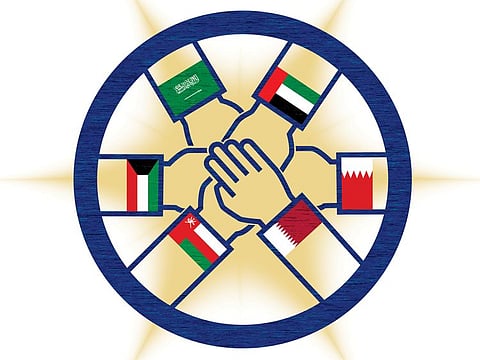Khaleeji states’ evolution: Insights on modernisation and globalisation
Abdulkhaliq Abdulla’s paper sheds light on the transformation of Gulf states

In his timely and theoretically rich Harvard’s paper “The Gulf Moment and the Making of the Khaleeji State”, the Emirati political scientist Prof. Abdulkhaliq Abdulla makes a unique contribution to the burgeoning literature on the changing nature of state and society in the Gulf Arab states.
Emphasising throughout the paper the factors, dynamics, and patterns that have characterised a Khaleeji society in a state of flux (Khaleej is the Arabic for Gulf; Khaleeji can be translated 'as from the Gulf').
Prof. Abdulla offers, with much empirical detail, a holistic view on the evolving and multifaceted interactions of Khaleeji societies with state-led modernisation, globalisation, and a new Arab state system, shaped and led by the Gulf states.
The paper, in part two, offers an in-depth examination of three crucial themes where these interactions are particularly in evidence: the two Ds of the Gulf moment, the Gulf moment and UAE momentum, and theorising the Khaleeji state. This examination is preceded by part one, which provides the historical and analytical context of the ‘Gulf Moment’.
Ebb and flow of globalised capitalism
Prof. Abdulla shows how the six states — even before their emergence as leaders of the Arab world — have experienced, for centuries, the ebb and flow of international politics and globalised capitalism. As for instance, with the pearl trade under the hegemony of the British Raj east of the Suez.
The advent of the Middle East oil era in the 1940s and the creation of modern Khaleeji states in the 1960s and 1970s transformed the above-mentioned Khaleeji interactions, but it has been since the 2000s that a massive acceleration has been in evidence, based on, as the author suggests, a combination of the maturity of nation-building projects and the shifting of focus to project power across the region, in addition to the desire to speed up the transition to post-oil economies.
As Prof. Abdulla terms it, these were the ‘take-off’ years, during which changing Arab and global contexts were emerging, and the Gulf states were well-equipped to adjust to them, and take advantage of them.
The new generation of Khaleeji leaders, especially in the UAE, have adopted different aspects of international engagement and governance with the aim of shaping the ‘rules of the game’ of global economic governance and, in parallel, the structural forces shaping Middle Eastern geopolitics.
This has also brought about a sort of projection of power regionally and beyond on the part of the UAE (and other small Gulf states) that is unprecedented.
Cooperation among stakeholders
The author notes that such power projection is not only born out of the accumulation of capital and military prowess but also from what he dubs the three ‘Cs’ that characterise the UAE’s momentum, these are: confidence in the nation’s latent capabilities, concern about the stability of its immediate neighbourhood, and cooperation among different stakeholders in the international order.
The final part of the paper offers an innovative and nuanced theorising attempt at defining the ‘Khaleeji state’ and the different facets of social life contained in it. It’s here that Prof. Abdulla’s four-decades of expertise shine through, especially when he delineates the contours of the new Khaleeji middle class, a social force that, according to the author, is not greatly dissimilar to its East Asian peer. It is worth quoting the author at length:
Just as the twenty-first century AGS (Arab Gulf States) are no longer small or rentier states, they are no longer typical traditional societies. The prevailing view of the AGS as traditional, tribal, Bedouin, static, and medieval societies is outdated and deserves to be revisited, particularly considering the new sociopolitical realities.
Socioculturally, the AGS today are modern, cosmopolitan, and global societies that have developed their own unique version of modernity, which is strikingly similar to many East Asian modernities ...
The Khaleeji middle class is made up of mostly university graduates who are multilingual, self-reflexive, and highly flexible citizens. They are essentially an instrument of modernity and globality, but they feel comfortable with lingering traditional values and institutions.
They are typically reformists but prefer the status quo and incremental institutional changes. The Khaleeji middle class, like their Asian counterparts, are progressive, inherently evolutionary, and act as forces of continuity
Marwan Alblooshi is an Emirati PhD student in Politics and International Relations at Lancaster University in the UK.


